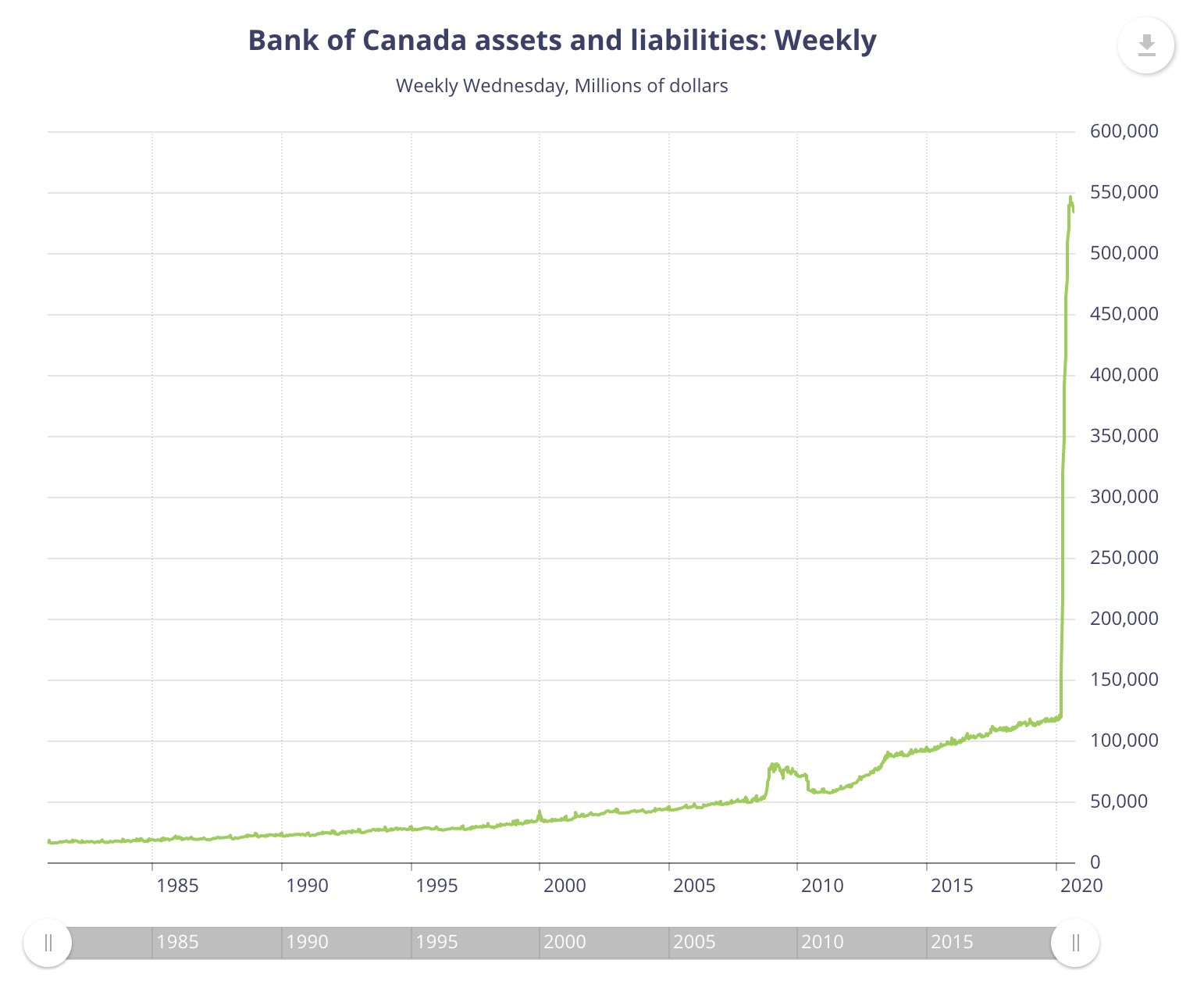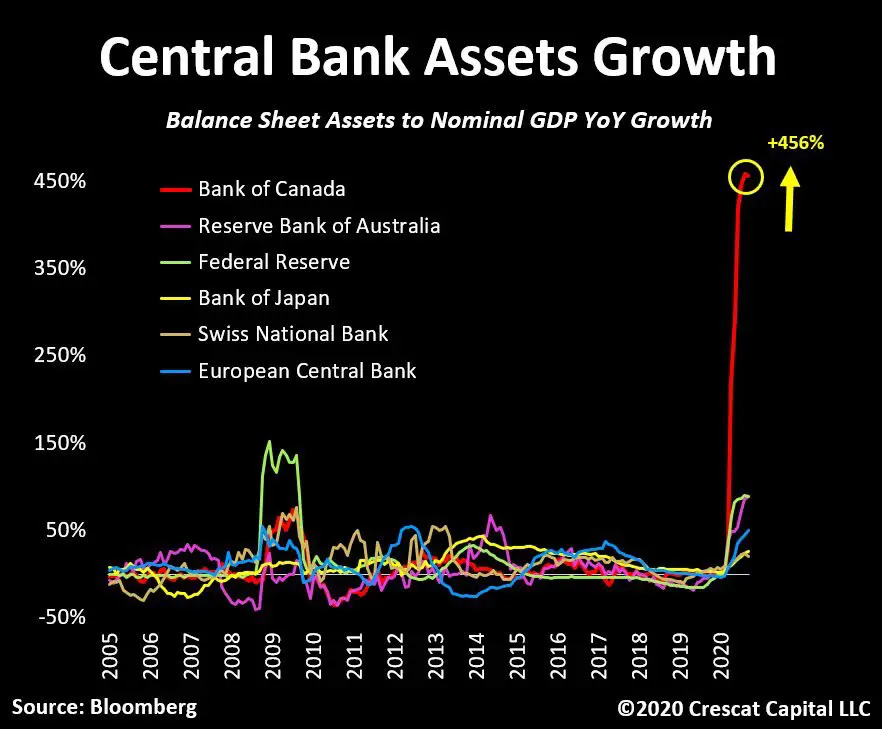It’s not ‘undermining confidence’ to point out when institutions like the Bank of Canada make serious errors, it’s an essential part of the accountability that must exist in a democracy.
Should institutions be given credibility automatically, or should they earn it?
The difference between the two tends to describe whether a nation is authoritarian, or free.
In authoritarian states, institutions demand credibility without earning it. They are supposed to be respected and obeyed simply because they are ‘in charge.’
By contrast, in democracies our institutions are supposed to earn their credibility through performance.
When they perform, they have credibility.
When they don’t, they are criticized and citizens can push for change.
That’s one of the fundamental ideas underpinning our democracy, the idea that our governments have to gain their support and credibility through action.
Strangely, some seem to have forgotten this.
For example, in response to Pierre Poilievre’s criticism of the Bank of Canada, some pundits have claimed this is beyond the pale:
It’s not surprising to see that type of criticism from the CBC, given that they depend upon Trudeau constantly increasing their funding and given that Poilievre has pledged to defund them.
Yet, note how the rhetoric on CBC matches what Jean Charest has been saying:
“For months, Pierre Poilievre has supported protesters who threatened to overthrow a democratically elected gov. Now he’s attacking the legitimacy of the Bank of Canada. He is stoking the flames of populism. We cannot take this lightly.”
For months, Pierre Poilievre has supported protesters who threatened to overthrow a democratically elected gov. Now he’s attacking the legitimacy of the Bank of Canada. He is stoking the flames of populism. We cannot take this lightly. #cdnpoli
https://t.co/UKULsWNBiV— Jean Charest (@JeanCharest_) April 9, 2022
Once again, Charest and the establishment media are singing from the same song sheet.
Note what isn’t talked about:
The actual criticism of the Bank of Canada.
Why would people be criticizing the Bank?
Because of stuff like this:
“Interest rates are very low, and they’re going to be there for a long time”: BoC Governor Tiff Macklem
"Interest rates are very low, and they’re going to be there for a long time": BoC Governor Tiff Macklem pic.twitter.com/1BFh2owsQs
— BNN Bloomberg (@BNNBloomberg) July 15, 2020
That was in July of 2020.
We also remember this:
“Bank of Canada policy makers aren’t worried about the recent run up of inflation they believe is being driven largely by temporary factors, according to a top official.
The pick-up in Canadian inflation to above 3 per cent was one of the key issues discussed by policy makers in deliberations this week, Deputy Governor Tim Lane said in a speech after the central bank’s stand-pat decision Wednesday.
Officials agreed the higher-than-expected inflation is largely due to unfavorable year-ago comparisons, Lane said on Thursday, with continued excess supply expected to put downward pressure on prices once the base effects abate.
“These base-year effects are, by definition, transitory — they will not persist beyond the next few months,” Lane said in prepared remarks. “What will persist until we see a complete recovery is the underlying slack in the economy.”
“This slack will continue to put downward pressure on inflation as these base-year effects fade,” he said.
Lane’s speech is an attempt to brush off worries about faster inflation that could prompt Canadians and investors to anticipate an accelerated exit from emergency monetary policy settings. Annual inflation in Canada already hit 3.4 per cent in April, and the deputy governor said the central bank expects it to remain around 3 per cent over next several months before moderating.”
That was in June of 2021.
And how about this:
“Canada’s high inflation rate is a temporary problem, but that doesn’t mean it will be resolved quickly, Bank of Canada Gov. Tiff Macklem says.
Speaking in an interview with CTV Network’s Sunday politics show, “Question Period,” Mr. Macklem said high inflation continues to be a top concern for the central bank. The bank has repeatedly described the situation as transitory, saying the factors pushing up inflation—such as supply-chain disruptions and elevated energy prices—are largely tied to the circumstances of the pandemic.”
That was in November of 2021.
And of course, we can’t forget this chart:

Or this one:

All of this money was thrown into the system, chasing an amount of goods that was not increasing nearly as fast.
Inevitably, this led to inflation.
The Bank of Canada told people that interest rates would be low for a long-time, leading many to feel more secure in borrowing and taking on more debt.
The Bank of Canada repeatedly said inflation was ‘transitory’ and would quickly recede, despite being wrong over and over again.
This means the Bank of Canada both encouraged inflation and encouraged the taking on of more debt by governments, businesses, and individuals.
Holding our institutions accountable
Considering the immense power wielded by the Bank of Canada, shouldn’t they be open to criticism and accountability?
Shouldn’t we have the ability, and the right to question their decisions, and point out their mistakes?
Of course we should.
And, given that individuals running for Prime Minister have to address the problems facing Canadians, it would be absurd if they acted as if the Bank of Canada was off limits from criticism.
This raises another interesting question:
Why doesn’t the establishment media look at who gets things right?
As I wrote for the National Citizens Coalition, consider that while the Bank of Canada has repeatedly been wrong, Pierre Poilievre has been objectively correct in his predictions:
“The things Poilievre has long been speaking about and warning about have indeed come to pass.
Debt and deficits surged.
The Bank of Canada rapidly expanded the money supply.
The housing market has become even more out of control.
Inflation has surged and life is getting more and more expensive.
Interest rates are going up, making all the debt Canada has accumulated at the federal, provincial, corporate, and personal level less and less sustainable.”
By contrast, as we saw above, the Bank of Canada has been wrong over and over again.
So, why should the Bank of Canada expect to be automatically granted credibility?
Credibility must be earned, and when our institutions fail to earn it it makes zero sense to somehow blame the public for that.
If our institutions want to win back the credibility they’ve squandered, they must be more open, more transparent, and – most importantly – do their job effectively.
Until that happens, they will continue to be questioned and criticized, and justifiably so.
Spencer Fernando
Photo – Twitter
***
Unlike CBC and much of the establishment media who are now beholden to the government, I rely upon voluntary contributions. If you value my perspective, you can show your support by making a contribution through PayPal, or directly through Stripe below. Your support is always appreciated.
[simpay id=”28904″]
